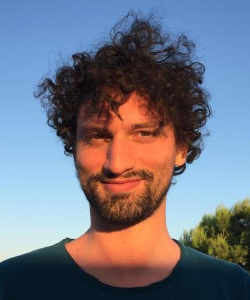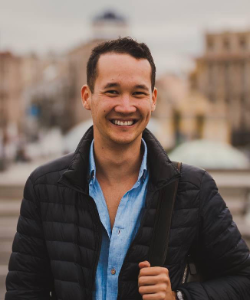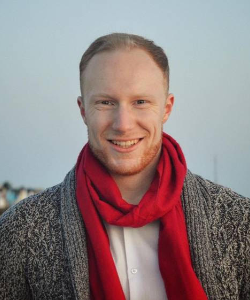G-Research June grant winners
- Quantitative Research
Each month, we provide up to £2,000 in grant money to early career researchers in quantitative disciplines.
Our aim is to support and assist PhD students and postdocs conducting research, particularly with costs that may be difficult to get funding for elsewhere, for example, travel for those who are caring for children, or expenses for volunteer work related to research.
Learn more about our grant programme, including how you can apply and the work we support.
Read on to hear from our latest winners, their research and how our grants will aid their work.
June grant winners
Francesco Muia (University of Cambridge)

“I am a Hawking fellow and postdoctoral researcher at the University of Cambridge, in the Department of Applied Mathematics and Theoretical Physics.
“My research focuses on the phenomenology of string theory and the cosmology of the early Universe. In the recent past, I have used machine learning techniques to build a partial differential equation solver, with the aim of applying it to cosmological simulations.
“The G-Research grant will enable me to take advanced courses on machine learning and artificial intelligence, enabling me to improve and broaden my technical skills in this area.”
Kilian Scheutwinkel (University of Cambridge)

“I am a 2nd-year astrophysics PhD student at the University of Cambridge, and my research focuses on developing Bayesian data analysis tools for 21-cm Cosmology.
“21-cm refers to the characteristic wavelength of the light that neutral hydrogen emits when a spin-flip occurs. As hydrogen dominated during the earliest phases of the universe, we can study this 21-cm line to conduct Cosmology to probe the evolution of the universe.
“In practice, we collect data through telescopes and use algorithms such as nested sampling to analyse these cosmological datasets.
“With the G-Research grant, I want to develop an open-source likelihood-free inference algorithm to enable accurate inference about cosmological models and their parameters, to constrain the evolution of our universe. The grant helps me to cover all related costs for development of that algorithm.”
Sam Holt (University of Cambridge)

“I am a PhD student, researching time series machine learning methods at the University of Cambridge.
“My research focuses on developing cutting-edge machine learning and AI theory and methods, with the goal of improving healthcare and medical knowledge.
“I am currently working on state-of-the-art dynamical system time series models in relation to incorporation of known inductive biases, to help forecasting and continuous optimal control settings. These time series methods learn variants of differential equations that govern the underlying dynamical systems, which is of great practical interest in the natural and social sciences.
“The grant from G-Research will fund the purchase of GPU to accelerate my research work, allowing me to develop and test my ideas, experiments and write papers to submit for publication significantly faster. It will lead to higher quality research, rather than selectively choosing projects, experiments or toy settings that are possible with current constrained compute.”
Congratulations to our grant winners.
